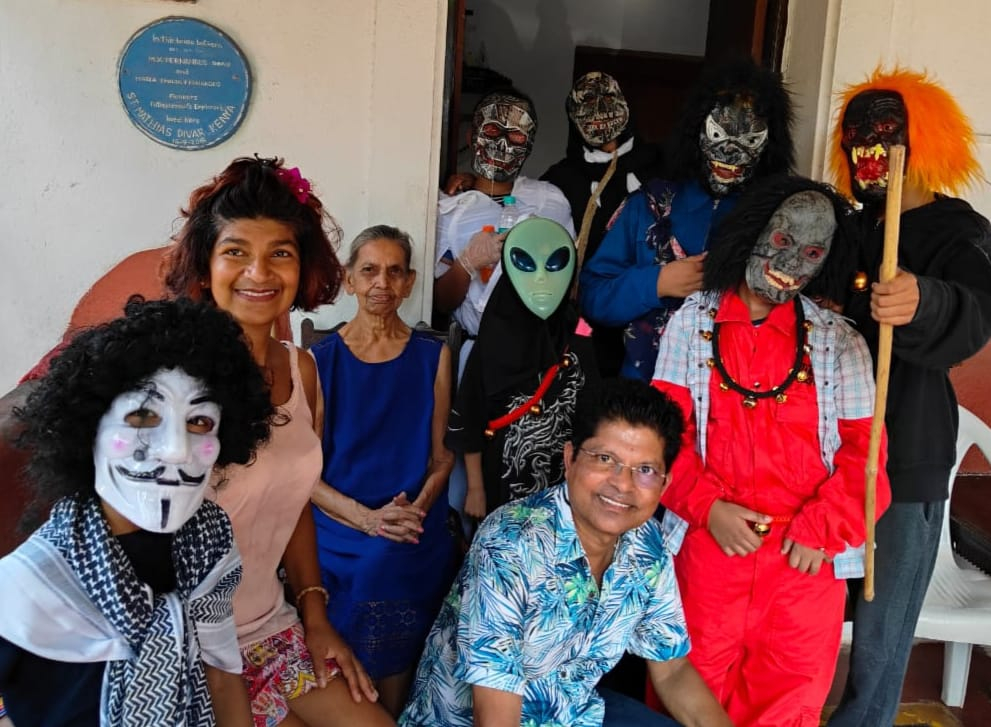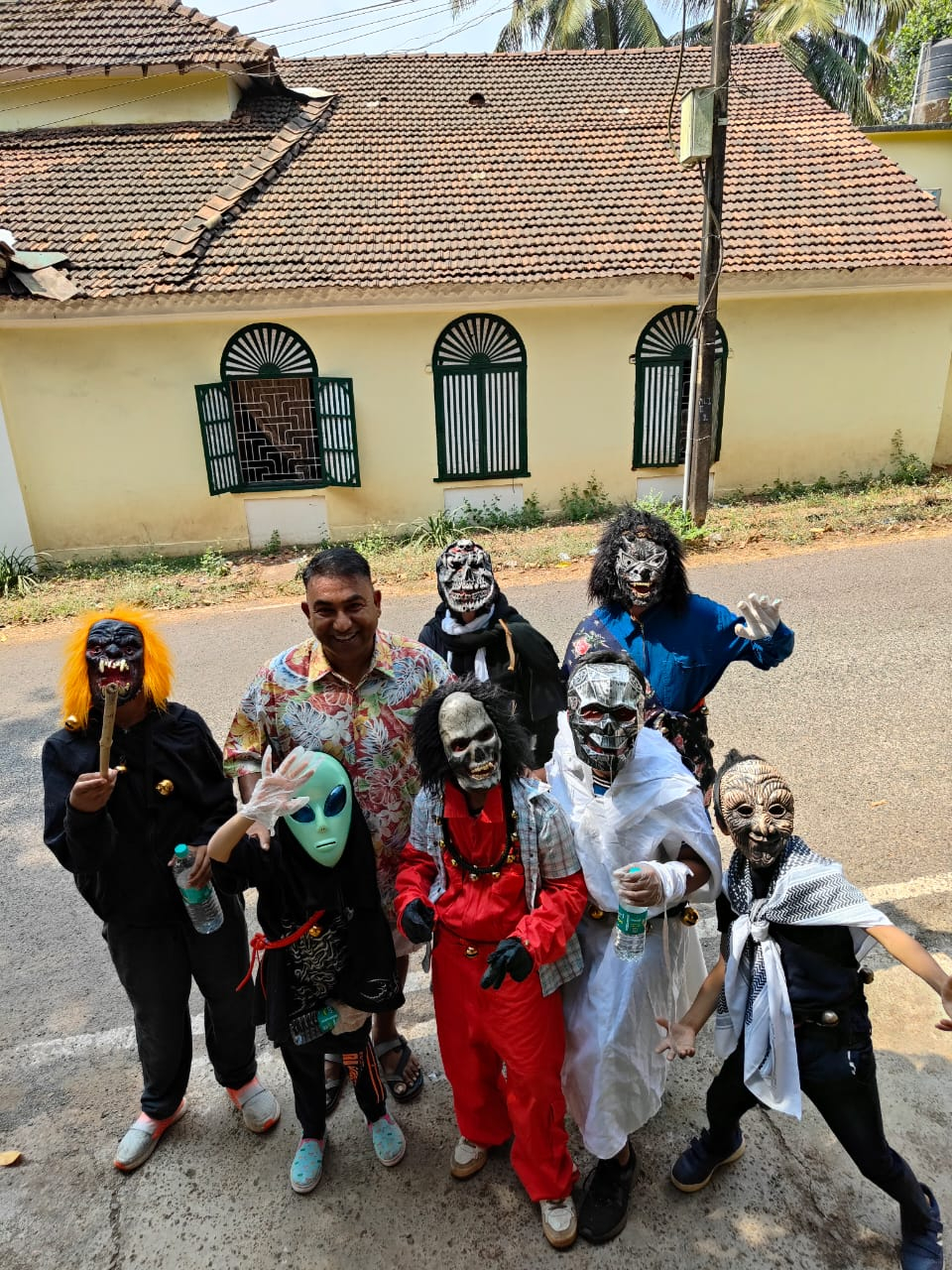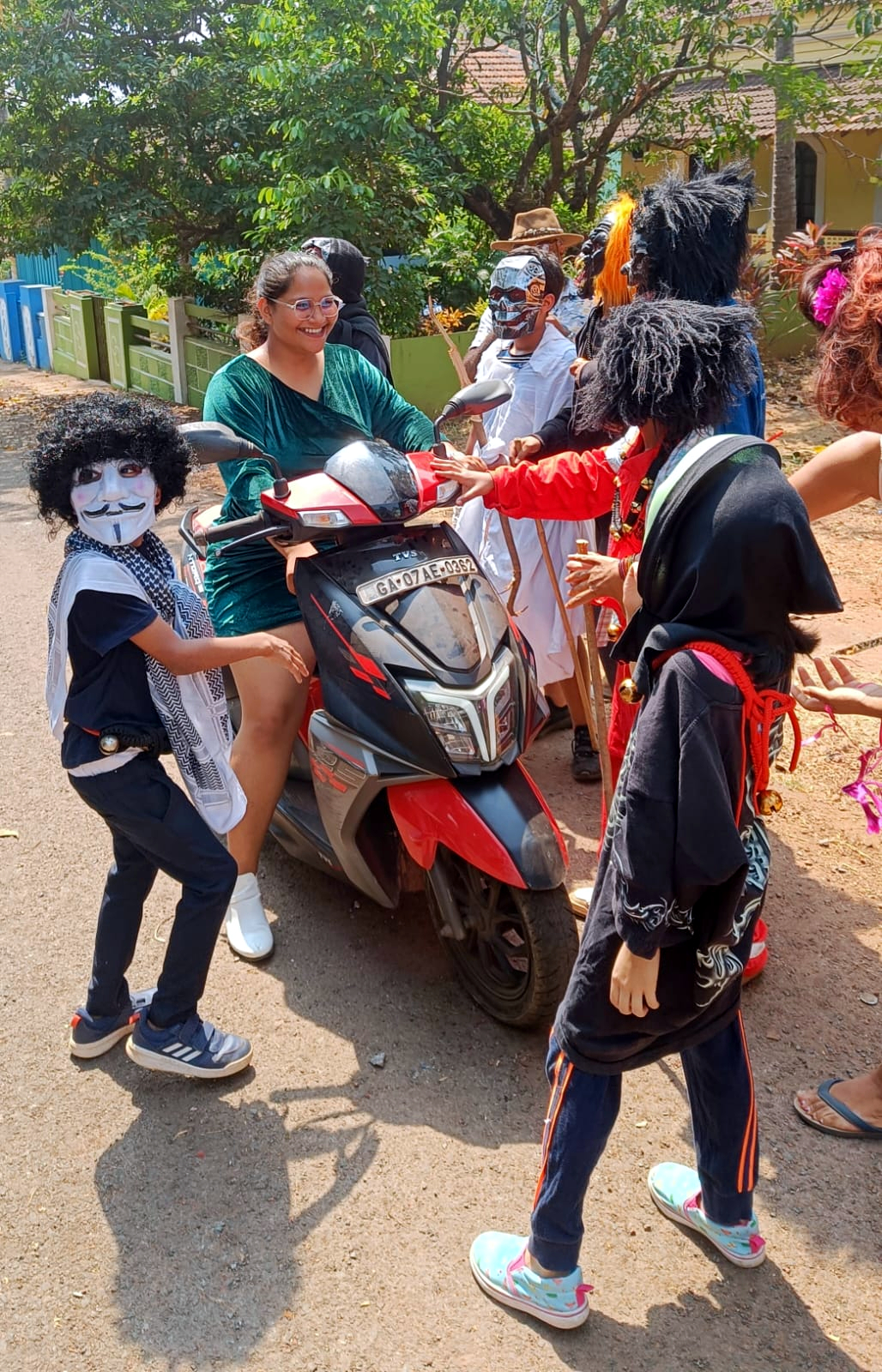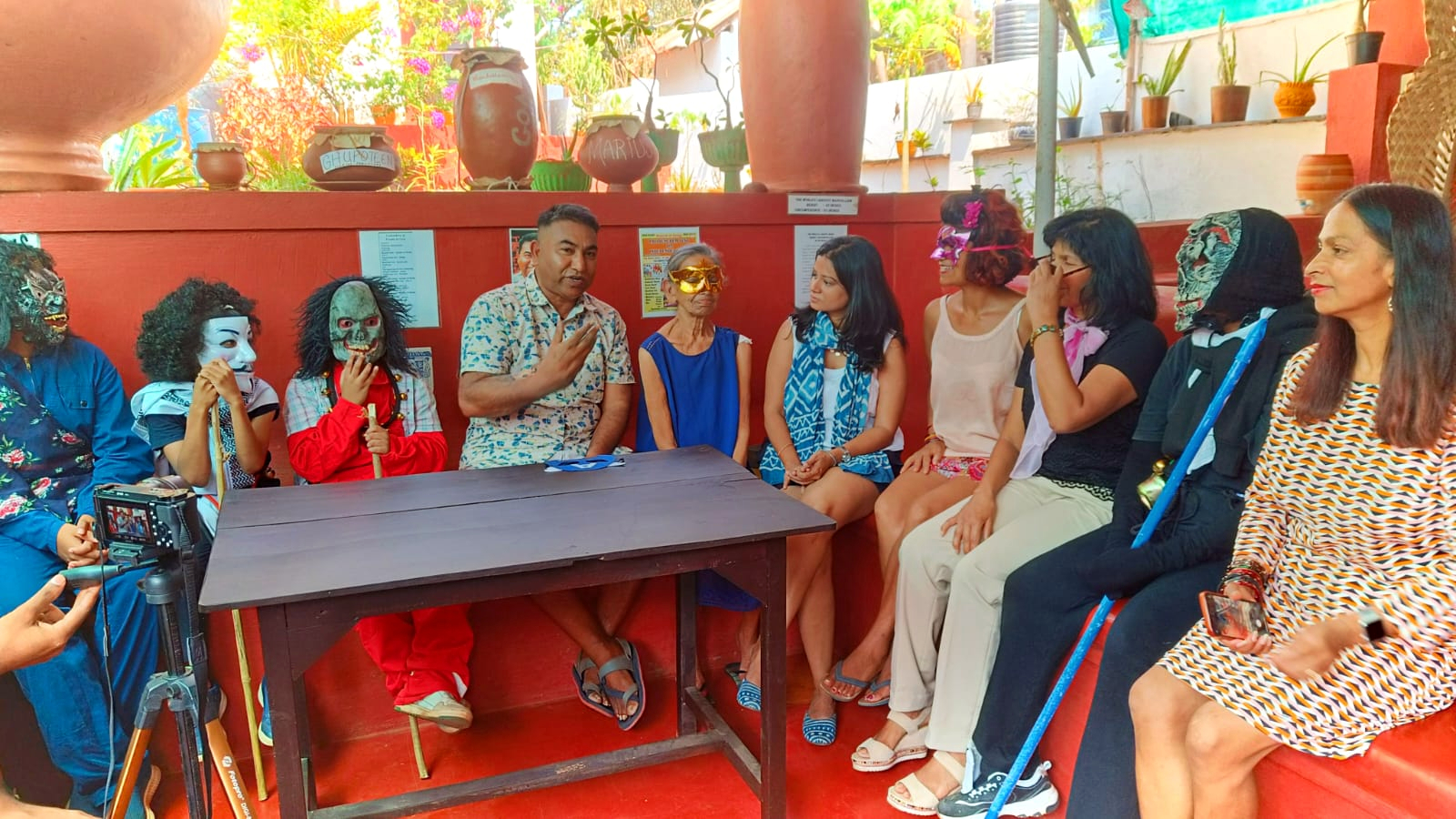
It’s not often that one spends a day witnessing an oral history lesson in Goan culture but recently, I drove out 50 kms to Divar to hear from some of its residents, in fact, members of one family, reminisce about their childhood celebrations of a festival rooted in Goa’s carnival traditions.
In Divar, the 3-day merriment before lent, was always celebrated differently. It was quite unlike the 3-day modern version that is a staple of Goa’s tourist calendar.
Today, the Divar version faces possible extinction as it has somewhat lost some of its earlier fervour with people migrating overseas, and few left to carry it on. However, one of Divar’s residents, the indefatigable Marius Fernandes, now in his mid-60s, bets that this can be prevented.

This unique celebration called Potekar, meaning “shabby” or perhaps even one who carried a bag “potio” with him masked groups visiting homes well into the night, to frighten the kids with their make up, and concocted stories. Then, the Potekars disappeared. Who were they?
One would be lucky to know. It could be a neighbour, an elder, a woman or anyone but the genius of those who enacted this village drama was to stay incognito.
Marius Fernandes saw his first Potekar as a child, after the family returned from Kenya in the late 60s, where it ran a small business. That first-hand experience, celebrated in 1974, has stayed ever since with him. For Marius, this year’s Potekar was a family-based commemoration that involved his mum, 92, whose memory remains razor-sharp, and his UK-based sisters.

Apart from masks, and loose garments, the Potekars go with sacks in hand go house to house to try and “kidnap” kids. That’s one popular version. The festival needed careful planning – to make masks from paper which was scarce way back, and also get some precious rice to make the glue, and then hide all the apparatus away from prying eyes.
One story way back was that the Potekars wanted to grab kids and take them away, and use their blood to make a bridge. The Mandovi bridge was not built then, and its proximity to Divar possibly leant credibility to this narrative.
Recounting Potekar 50 years on meant peals of laughter at the lunch. Marius hopes to use his own Potekar experience to encourage people to come out once again, and have some fun, clean and non-commercial. He hopes to draw upon his experience having curated many a village festival as ‘Goencho festekar’, over many years in which the folks gather to experience community feeling devoid of commercial influence.
Thousands descend on Goa for the New Year, Sao Joao, rave parties, and today, many question this commercialisation that takes the community and what it cherishes, out of the celebrations. It also impacts a fragile environment.

Marius’s festivals seek to reclaim the spirit of previous festivals when they were celebrated without the ugly head of commerce peeking into them. He remains hopeful that Potekar will survive as many of the islanders who migrated afield are returning home. It’s up to the next generation and NRI Divadkars to visit not just for weddings but to participate in village life and keep the spirit going, he says.
But Goa is changing. As I drive away from the island, and take the narrow road that traverses fallow fields to the ferry point, one can see the many changes. The road, in parts, is being widened, and my driver, Milind Borkar, says even the adjacent water bodies, will one day go.
Across the island are apartment blocks with river views that won’t go for less than Rs 1 crore. There are also architectural masterpieces such as the Solar dos Colaços and the former Goa Institute of Management building. But with climate change and rising sea levels, there will be challenges ahead.
There’s talk of a bridge to link the island to the mainland. But that’s some years away. What changes will that bring to picture-post card Sao Mathias-Divar? And will Potekar survive, and re-ignite the fellowship of years gone by? Only time will tell.
[The writer has worked as an auto journalist and in corporate communications in Mumbai. He has lived in Goa since 2020.]